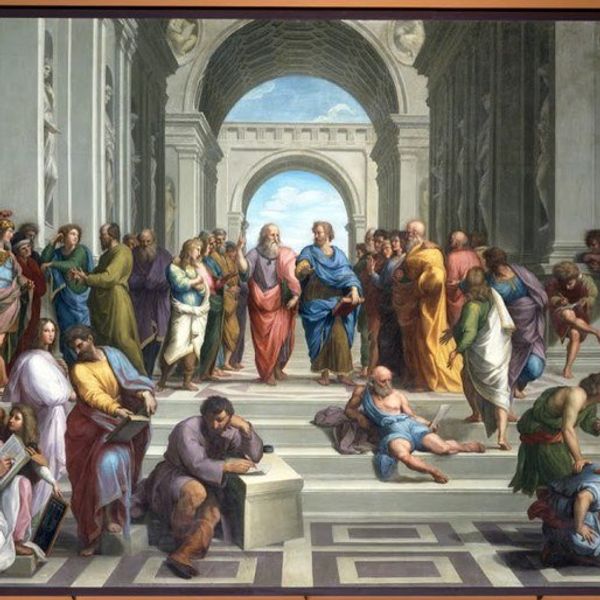Moral philosophy, or ethics, might be considered the most important branch of philosophy because it can be applied by everyone during decisions they make in their everyday lives. Moral philosophers concern themselves with discovering principles of right and wrong conduct on the basis of argumentation and theory construction. The three most reputable strands of moral philosophy include Virtue ethics, expounded by Aristotle, Utilitarianism, set forth by John Stuart Mill, and Deontological ethics, famously illustrated by Immanuel Kant.
Morality exists inherently in the psychology of complex animals like ourselves, so it is of much importance that we come to understand its merits and profundity. Even just slight moral considerations in a world full of atrocities and barbarism can set humanity on the right track to a more hospitable world.
The following article will be a brief guide to the three moral philosophies I mentioned in my introduction.
Virtue ethics—which one can read up on in Aristotle's "Nicomachean Ethics"—consists of how one may go about living the good life, which Aristotle called "eudaimonia." Eudaimonia translates, roughly, to "happiness" or, perhaps more accurately, "human flourishing." To achieve eudaimonia, one must live and act virtuously. Aristotle distinguishes between intellectual virtues and characteristic virtues, but it is the latter which I am at present concerned with. There are 12 human virtues defined by Aristotle and among them are courage, liberality, modesty and magnanimity. This is where we come to Aristotle's "doctrine of the mean." Each virtue has a mean, deficiency and excess. For instance, courage is the mean, cowardice is the deficiency, and rashness is the excess. Finding out where we land on the spectrum will allow us to determine which virtues we need to work on and which ones we excel in. We will become more and more virtuous, and thus more happy, by habit and repetition. By habitually exercising our virtues, we shall obtain eudaimonia.
Utilitarianism rests on the premise that the end justifies the mean, the end being happiness or pleasure. Whichever action at any given time that brings the greatest amount of human pleasure is the right one. This does not mean we should all be selfish hedonists, simply soaking up pleasure for ourselves. It means we should do everything within our means to increase overall happiness in the world. We should give when we can, help others when we can, and reduce pain and unhappiness when we can. For example, it probably wouldn't be considered good to a utilitarian to buy an expensive meal when a much cheaper meal can be bought and the extra money used to feed a homeless family. Much more pleasure would be derived by feeding a homeless family than would be derived by the momentary satisfaction of one's taste buds in a five-star restaurant.
Deontological ethics is perhaps the most abstract of the moral philosophies. Immanuel Kant introduced the "categorical imperative," which is the underlying principle in his system of ethics. The categorical imperative is defined as acting "only according to that maxim, whereby you can, at the same time, will that it should become a universal law." In other words, we should act in a way that we would want other people to act. If I am a compulsive liar, I must ask myself if I would also want everyone else to be compulsive liars—what a terrible world we would live in if that were true! Kant claims that reason is the medium through which we can identify and oblige ourselves to these "ultimate commandments of reason." But we can only do good out of a sense of duty to those moral commandments dictated by reason, not to achieve some further end.
Morality is a difficult and abstruse subject, and it's not always clear how we should act in every situation. Politicians and world leaders may find morality to be an even greater challenge because their actions can influence millions of lives. Philosophers can give us systems and theories of right and wrong conduct, but it is up to us how we use them to make the world a better place.





















